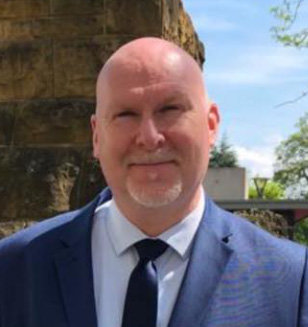Navigating the complex labyrinth of love can often feel like an art as much as a science. Unseen emotional barriers and unconscious patterns frequently stand in our way, making the pursuit of deep, meaningful relationships seem daunting. Mark Travers, a psychologist who analyzed these phenomena for Forbes, sheds light on how these unseen forces operate and what can be done to overcome them. His insights reveal that understanding the underlying psychological dynamics is crucial for fostering healthier and more robust relationships.
Understanding Emotional Barriers in Relationships
Pluto TV’s Hidden Movie Section Rivals Premium Services
Korean Netflix Has 200+ Shows US Version Doesn’t Stream
One significant emotional hurdle many face is the difficulty in allowing others to get close. Past hurts and disappointments can lead individuals to develop automatic defenses that inhibit emotional intimacy. Travers points out, “It’s not that you don’t want love or aren’t ready for it. You might unconsciously maintain habits that protect you but also keep you stuck.”
Netflix reveals economics behind 3-season cancellations as viewership metrics drop
YouTube Premium Originals Nobody Talks About Are Award-Winning
A study involving 144 couples found that those with high levels of avoidant attachment experienced less intimacy in their relationships. This distancing not only reduces personal closeness but also hampers connection with the partner. However, couples who tackle issues together and provide mutual emotional support can mitigate the effects of avoidant attachment. This joint coping fosters empathy, responsiveness, and commitment, building trust that encourages even the most reserved individuals to open up.
The Pitfalls of Rushing Love
Today’s dating culture, with its emphasis on speed and instant chemistry, can impede the organic development of relationships. A longitudinal study published in Developmental Psychology followed individuals from adolescence into adulthood, exploring how relationship quality evolves over time. The findings highlighted that the emotional intensity of early relationship stages does not necessarily maintain or reflect true intimacy. Over time, mature relationships tend to exhibit less jealousy, controlling behaviors, and conflicts while maintaining sustained affection and support.
These insights emphasize that genuine intimacy develops through consistency over time. Rushing emotional involvement can obstruct the balanced and healthy growth of a relationship, confusing intensity for true closeness.
Delaying Emotional Openness
Another common behavior Travers discusses is postponing emotional openness until one feels fully “prepared” or secure emotionally. While this may seem cautious, it often acts as a protective mechanism that limits closeness. Research in Current Opinions in Psychology suggests that close relationships act as emotional ecosystems that promote both individual growth and mutual support during challenges.
- Safe Haven: Provides comfort and security in times of stress, loss, or failure.
- Secure Base: Supports personal development and exploration, backing individual challenges and risks.
These roles enable the couple to offer emotional support while each partner pursues autonomy and self-discovery. Travers highlights that mature intimacy emerges alongside personal growth, not solely as a result of being fully prepared beforehand.
Identifying and Transforming Unhelpful Patterns
Experts agree that emotional self-protection mechanisms do not define a person’s identity or their capacity to love. Travers advises, “The path to deeper intimacy starts with conscious decisions. This means acknowledging that your patterns are merely emotional habits formed from past experiences, not permanent truths about who you are or how you love.”
Recognizing these behaviors lessens their impact and facilitates the adoption of healthier, more open responses. Change is gradual and requires patience, but identifying and addressing these blocks opens the door to a stronger and more balanced love experience.

Daniel Harris is a specialist journalist focused on the crossroads of breaking news, extraordinary history, and enduring legends. With a background in historical research and storytelling, he blends timely reporting with timeless narratives, making complex events and ancient myths resonate with today’s readers. Daniel’s work often uncovers surprising links between present-day headlines and legendary tales, offering unique perspectives that captivate diverse audiences. Beyond reporting, he is passionate about preserving oral traditions and exploring how extraordinary stories continue to shape culture and identity.

